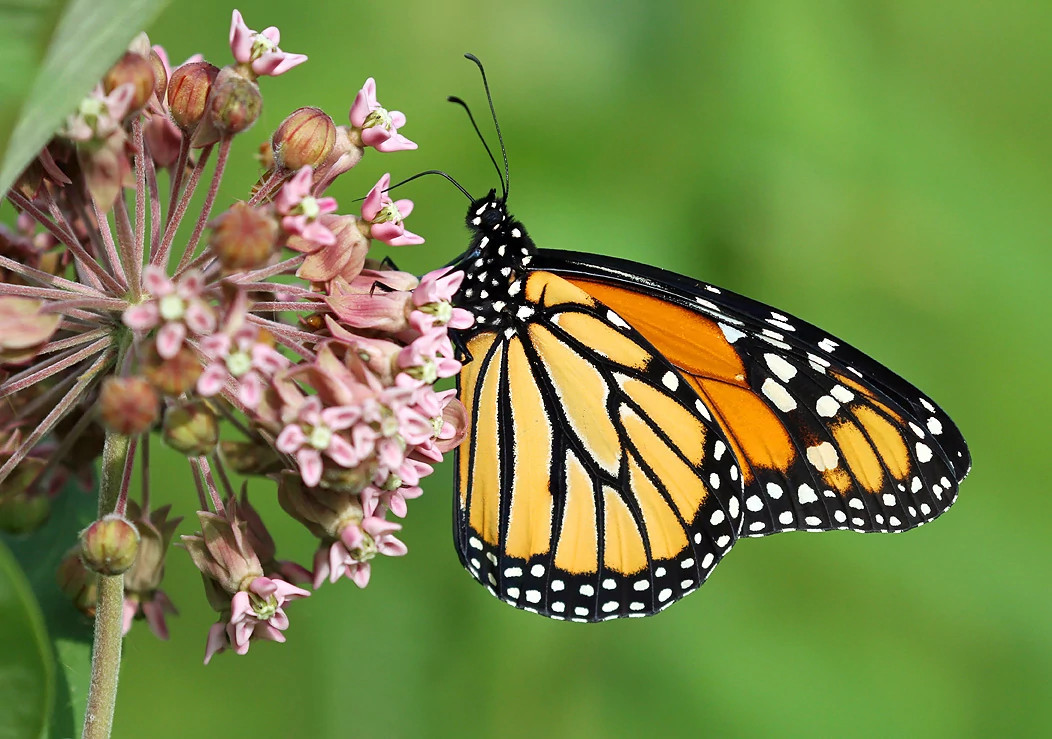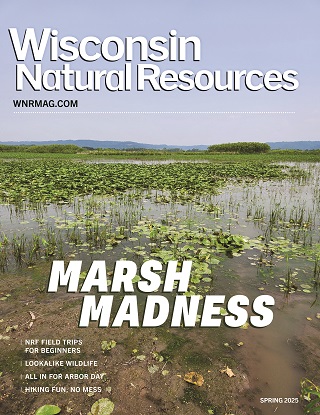Contact: DNR Office of Communications
DNRPress@wisconsin.gov
Help Pollinators By Collecting Wild Common Milkweed Seedpods In Select Central Sands-Area Counties
 The DNR seeks donations of mature milkweed seedpods from select Wisconsin counties to aid plantings on state prairies.
Photo credit: Wisconsin DNR
The DNR seeks donations of mature milkweed seedpods from select Wisconsin counties to aid plantings on state prairies.
Photo credit: Wisconsin DNR
WISCONSIN RAPIDS, Wis. – The Wisconsin Department of Natural Resources (DNR) is asking nature lovers and landowners in Wood, Portage, Adams, Juneau, Waushara and Marquette counties to collect wild common milkweed seedpods to help grow habitat for native pollinators on state lands.
Volunteers are encouraged to harvest seedpods from their property or neighbors’ fallow fields (with the property owner’s permission) from Sept. 10 through Sept. 30. The DNR will use collected seeds as part of a monarch habitat restoration project across several State Natural Areas in the Central Sands region.
“We aim to plant local native seeds, including milkweed, in established and new prairies to help pollinators like monarchs and the federally endangered Karner blue butterfly,” said Joshua Schultz, DNR Natural Heritage Conservation Program Intern and project lead. “We need the public’s help to collect milkweed seed to be planted in these state prairies for everyone to enjoy for generations to come.”
How To Help: Collect, Contain, Deliver
COLLECT – Harvest mature wild common milkweed seedpods only in Wood, Portage, Adams, Juneau, Waushara and Marquette counties. Mature pods are brownish-green or grayish-green. If the leaves are dying or falling off, the plant’s pods are likely ready for picking or soon will be.
CONTAIN – Place seed pods in a brown paper bag, feed sack, cloth bag or other breathable bags for donation. Include the following information on the seed bag: the address or latitude and longitude coordinates of where you collected the seed and contact information for any DNR follow-up questions.
DELIVER – Drop off the milkweed seed bags at one of three Chronic Wasting Disease sample collection sites available 24/7 in Adams, Necedah and Wisconsin Rapids, listed below. Place the seed bags in the side door of the kiosk to protect them from the elements. Once dropped off, contact project manager Joshua Schultz at schujc09@uwgb.edu or 608-403-6243 to let him know the seeds have been delivered.
Drop off sites:
- Adams County: Friendship Ranger Station, 532. N. Main St., Adams, WI
- Juneau County: Necedah Ranger Station, 400 Birch St., Necedah, WI
- Wood County: DNR Wisconsin Rapids Service Center, 473 Griffith Ave., Wisconsin Rapids, WI
Why Milkweed Helps North American Pollinators
Wisconsin is in the heart of the breeding ground for the eastern migratory population of monarchs, whose population has decreased by 80% over the past 20 years. There are 54 of the state’s 72 counties located within the breeding area prioritized for monarch butterfly habitat. Recent research using data submitted over the past 25 years by volunteers with Journey North, a citizen-based monitoring project based at the University of Wisconsin-Madison Arboretum, determined that Wisconsin had the fifth-highest number of monarchs just before the fall migration began to Mexico.
In addition to its importance for monarchs, Wisconsin is a stronghold for the federally endangered rusty patched bumble bee and the federally endangered Karner blue butterfly. It is home to populations of 16 other at-risk pollinator species.

